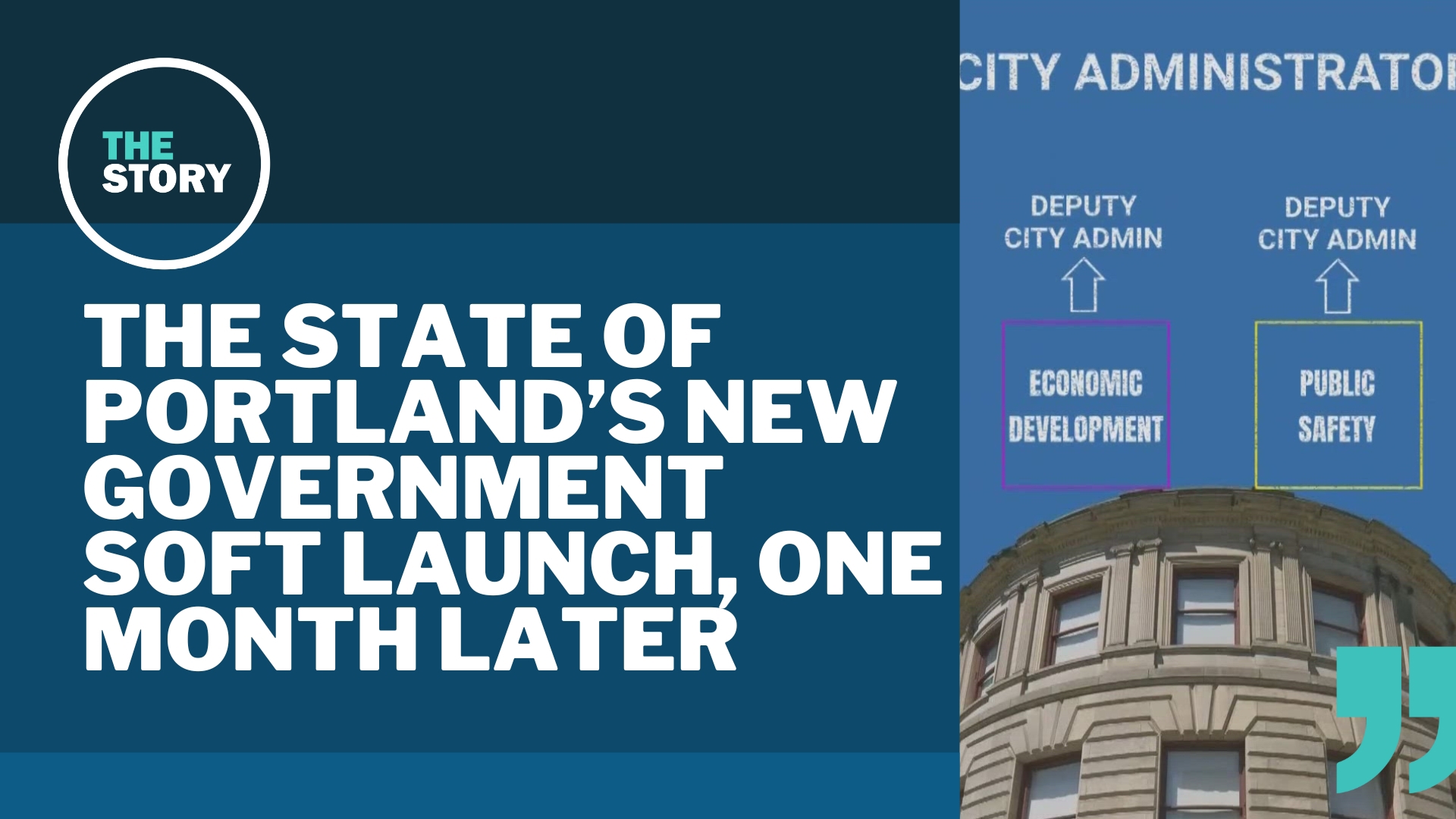PORTLAND, Ore. — The city of Portland is wrapping up its first month after beginning a dry run of its new, voter-approved government structure, and it seems to be shaping up to be a success after a bumpy start.
The old structure had elected politicians in charge of huge city agencies, in which the system created silos where people did not cooperate — and sometimes bureaus ignored the wishes of the mayor or other leaders.
The new structure has six deputy city administrators over nearly every part of city government. They answer to interim city administrator Michael Jordan, who said the new structure got off to a rocky start but is now showing real results.
Needless to say, the new system got a trial by fire: Gov. Tina Kotek announced a statewide extreme heat emergency, then Portland Mayor Ted Wheeler called a state of emergency due to the global CrowdStrike outage. Jordan referred to them as "a couple of kind of interesting coincidences."
"And I will tell you — and I want to say some of this is because the county had done a better job, also — but I've never had a more coordinated response to an emergency, a weather emergency like that," Jordan said. "I think it was because we had the ability to simply reach out directly to bureaus, and they were immediately responsive, and so the coordination was just more fluid.
"It isn't that we didn't get that kind of cooperation of in the past; it's just that it happened faster, and people were more responsive to when Emergency Management called and said, 'We need you here right now,' and people would drop everything and move ... that hasn't always been the case with bureaus."
In the past, each bureau had its own structure and its own political leader. Now, that's essentially gone, with the mayor taking charge of all the bureaus and putting them under the authority of the city administrator and his deputies.
This is the new system that will officially become Portland's government on Jan. 1, but they started a soft launch on July 1 to practice and get it figured out before the new mayor and council take office in 2025.
Jordan added that the worldwide CrowdStrike issue was another chance to test the new system.
"With Microsoft and the patch, and we literally were — because, I think, of the ability to engage with the Bureau of Technology Services and then, of course, all the user bureaus — communicate in a more consolidated way through the deputies to their bureaus that we have emergency services up and running in almost no time, and in fact, we didn't miss any 911 calls," he said.
"We were, I will admit, we were taking calls on the phone and writing in notepads for about an hour, but we didn't drop any calls. The police were back up and running really quickly," Jordan continued. "And this is another kind of indicator of a coordinated effort. The fact that we were able to muster the (behind the scenes) staff and get them to precincts ... So, somebody had a laptop and they were on and it got infected by the patch (and they needed to) actually physically bring the laptop into somebody that could redo the patch.
"And so we were able to deploy people very rapidly overnight to places like precincts and to the Emergency Communications Center to be able to get those end user devices fixed really fast, and I just don't think we would have been that responsive in the past."
Now, of course, not everything is going perfectly smoothly. Jordan said one ongoing challenge is how to keep the city commissioners informed on what is happening with the bureaus they used to control, while at the same time keeping them out of the way.
"I think the commissioners as a group have been really good about the understanding that we have to start to work this system in a new way if we're going to be ready for January," Jordan said. "So, it isn't like anybody wants to stop anything; I think it's just old habits. You know, people have been used to doing work a certain way with a set of bureaus that they had authority over, and there are a number of items, policy issues, project issues that that have been in flight for a while, and the commissioners have been very involved in those things.
"And so, how do we keep them involved and ... not have them directing work individually? They still have all their legislative authority. They still can do an ordinance or resolution and direct us to do something. And if three of them, say, 'Do it,' we're going to do it. So, they still have that legislative authority.
"It's really the inflight stuff that they were working on individually with their bureaus, and how can we keep those things going, keep them engaged and yet not having them direct work and so that, you know, old habits and trying to get through that — and we're all learning together. Staff's learning just like the electeds are, so we're all we're all going through it together."

